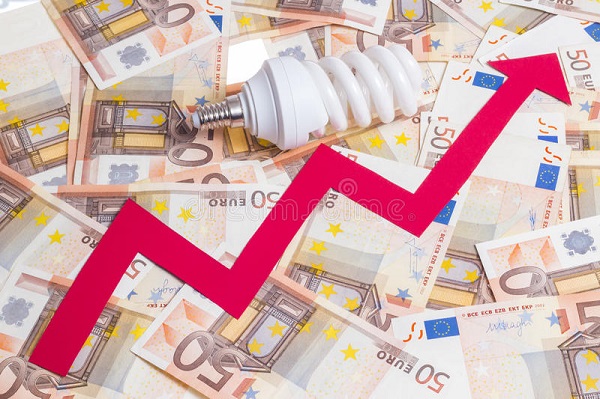 Credit: Dreamstime
Credit: Dreamstime
Caritas Luxembourg has published a position paper calling on political leaders to take action over rising energy prices.
As the days get colder and following the significant increase in energy prices, Caritas has asked decision-makers to take all the measures necessary to prevent people from falling into energy poverty this winter in Luxembourg.
The price of gas and electricity has skyrocketed in recent months on the world market. In Luxembourg, the price of natural gas invoiced has increased by 60%, which translates to an increase of 30% for the total price of gas. The price of fuel has also increased in recent months. Before the pandemic, around 11% of the European Union's population, i.e. 54 million Europeans, were already affected by fuel poverty, according to Caritas. In 2019, 2.4% of Luxembourg's population were unable to maintain an adequate temperature in their home. Whilst this percentage may seem low, over the past ten years, Caritas has observed an upward trend in the number of people having difficulty managing the temperature in their homes. With prices so high, this percentage is likely to increase further this winter in Luxembourg.
In addition, the COVID-19 health crisis has had two other negative effects on households in energy poverty: first, the number of people affected by poverty has increased in absolute numbers due to the loss of income; secondly, people have been forced to spend more time at home because of the lockdowns, resulting in higher energy bills.
According to Caritas, fuel poverty is a multidimensional problem. It is not just the price of energy and household income that contributes to this form of poverty. Energy consumption is another major factor. At the European level, Luxembourg has a very high rate of energy consumption per capita. Energy consumption depends on physical factors such as the cold outside, the insulation of homes, the heating technology used and household appliances, but also on the behaviour of people. An effective fight against fuel poverty must target these two levels, urged the non-profit.
With the recent rise in prices, fuel poverty is a social problem that "legitimises political intervention". Caritas stressed that existing and growing energy poverty must be tackled through targeted measures which also include, as preconditions, the measuring instruments necessary and updated statistical processing. In the context of the poverty debate, the relationship between poverty and health is a still neglected area that should be highlighted.
As the cold weather approaches, Caritas Luxembourg has therefore called on decision-makers to take the necessary measures to prevent people from falling into energy poverty this winter in Luxembourg. Specifically, politicians should consider a moratorium on energy prices, reassess and increase the social compensation for the next increase in the CO2 tax from €22 to €25 per tonne of CO₂ in January 2022, and ensure that there will be no interruptions in the supply of energy for people in precarious situations.
In the long term, to combat climate change while fully integrating the social dimension, Caritas deems it necessary to pursue a greater and targeted promotion of MyEnergy services in terms of offering personalised energy advice and a subsidy for the replacement of one or more energy-intensive household appliances, to create more targeted state subsidies to give low-income households the opportunity to make the renovations or acquisitions necessary for the property in which they live, and to condition access to the various aids according to social criteria in favor of the most deprived owners. The non-profit also called for the implementation of a system to regulate the increase in rent by landlords after improving the energy efficiency of their rented properties, adding that any increase in rent should be compensated by an increase in the rent allowance, and that owners who make their apartments available for social rental management be further encouraged and supported to renovate in terms of energy efficiency.








